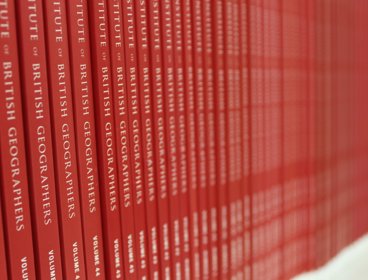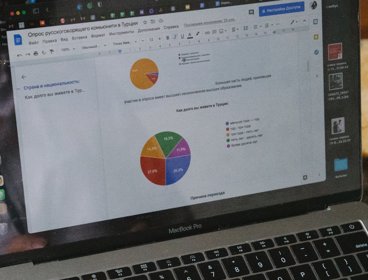By Phil Emmerson, Royal Geographical Society (with IBG)
Since 1 April 2022, the UK’s primary research funding agency, UKRI, has required those in receipt of UKRI funds to comply with its open access policy for all peer reviewed research articles. From 1 January 2024, this requirement will be extended to monographs, book chapters and edited collections. Full information about this policy is available on the UKRI website, alongside frequently asked questions.
The aim of this guide is therefore to provide a plain language overview of the policy, to aid geographers and others to navigate this element of academic publishing.
Requirements for publishing research articles as a UKRI funded author
Since 1 April 2022, all UKRI funded authors have been required to publish peer-reviewed articles in journals or conference proceedings under an open access arrangement.
There are two ways in which authors can do this:
-
To make the actual version of the article that is in the journal open access. This might be through publishing in an open access only journal, or through publishing in a ‘hybrid journal’ (one that publishes both open access and subscription articles). The article must be published using a CC BY license (except in exceptional circumstances). This kind of publishing is sometimes known as ‘Gold Open Access’.
-
At the time of publication, the author may deposit the final version of the manuscript (the one that is accepted for publication) into an institutional or subject level repository which anyone can view. The deposited version must have a CC BY license attached to it, and there must be no delay (such as a publisher-imposed embargo period).
UKRI state no preference between one of these routes over the other, and state that authors should be free to decide on the most suitable outlet for their research, so long as these requirements can be met. They have provided money to institutions, in the form of a block grants to enable costs associated with these requirements to be met.
Requirements for publishing books as a UKRI funded author
From 1 January 2024 monographs, book chapters and edited collections funded by, or partly funded by UKRI will be required to be published under and open access agreement within 12 months of publication.
There are two ways in which authors can do this:
-
To make the actual version of the book open access using a CC BY license. The book must be free to view and download via an online publication platform, or publisher’s website.
-
The final Version of Record or the Author’s Accepted Manuscript can be deposited in a subject repository or similar where it must be free to view and download. It should be made clear that this is not the final published version.
Again, UKRI state no preference between either of these routes and in both cases images, illustrations, tables and other supporting content should be made available. They have also provided additional money to institutions, in the form of a block grants to enable costs associated with these requirements to be met.
The UKRI policy recognises there may be instances where open access requirements for books may not be possible, such as where the only appropriate publisher is unable to offer an open access option that complies with UKRI’s policy or where a monograph, book chapter or edited collection is the outcome of a UKRI Training Grant, although in this instance UKRI expects research organisations to support researchers to make such outputs open access where possible. The exact guidance on these exceptions is yet to be released. There is also an exception for trade books, except when these are the only outcome of the grant funding.
Requirements for publishing other kinds of ‘long-form publications’ as a UKRI funded author
In general, UKRI would encourage the use of open access publishing for all other types of ‘long-form’ publications, however there are a number of kinds of ‘long-from’ publication that are out of scope and therefore do not require an open access arrangement. These include:
-
Trade books - the decision whether a book should be considered a trade book or an academic monograph, is at the discretion of the author and publisher.
-
Scholarly editions. Defined as an edition of another author’s original work or body of works informed by critical evaluation of the sources (such as earlier manuscripts, texts, documents and letters), often with a scholarly introduction and explanatory notes or analysis on the text and/or original author.
-
Exhibition catalogues.
-
Scholarly illustrated catalogues.
-
Textbooks.
-
All types of fictional works and creative writing.
About this guide
Publishing is a crucial, but sometimes daunting and unexplained, part of academic life. All academic geographers are supposed to do it, but there are few formal guidelines about how best it should be done. Many of us discover how to publish by trial and error or through the mentoring and support of colleagues. Publishing and academic landscapes also change, presenting new challenges to established academics. The publishing and getting read guides have four main aims: to provide clear, practical and constructive advice about how to publish research in a wide range of forms; to encourage you to think strategically about your publication profile and plans; to set out some of the opportunities and responsibilities you have as an author; and to support you in getting your published research read.



